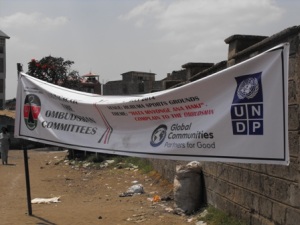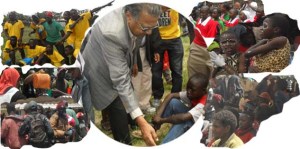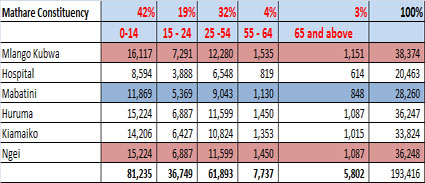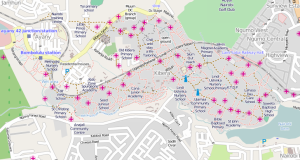Is the National Youth Service (NYS) the way to go in bringing up a citizen who is service oriented to his country? The NYS act of 1964, envisaged Kenya creating a platform of reintegrating militant youths then to reorient, assimilate and create a pool of employable disciplined youths who can support the army or police force while pursuing national cohesion agenda. Forty nine years later, Kenya is at cross roads seeking betters ways of involving and motivating over 60% of its populations in nation building through the NYS.
Over the years, Kenya government and private sector have made huge investments in education which has seen high enrolment from Early Childhood Education to University level. On the other hand we have yearly police and armed forces recruitment drives absorbing many young people. However the rate of unemployment, deterioration of public service is quite evident in urban centers where provision of basic services such as garbage collection and poor roads and housing is in dire need. Above all these, Kenya is still a fragile state as witnessed in 2008 post election violence.
How then can the youth be involved in a constructive way without exploitation? Participation in nation building should be an obligation which a good citizen must carry out with pride. People have rights and the state has responsibility to do whatever is necessary to fulfill these rights. One such right is to ensure that we all live in safe and clean environment. Institutions such as education, military, police and work place should assist in fostering a sense of cohesion among the citizens.
The Ministry of Devolution recently launched a programme of recruiting young people through NYS and youth are equipped with skills to offer various services to the vulnerable communities. In Nairobi, the entry point has been participating in garbage collection in the informal settlements starting with Kibera. All over the world, governments have always strived either to control or involve youth in development. It is easy to control people who have passed through forces training since there is respect attached to chain of command. However the danger lies when it comes to demilitarizing the youths and reintegrating them back into civilian life. Conflicts in the region and ‘cheap’ labour might make Kenya a fertile ground for recruitment. The rate of unemployment is quite high all over Kenya which sometimes back, the World Bank had warned us that this is bomb’ waiting to explode.
In general, youth are very innovative and creative and Kenya government should think beyond controlling and militarizing the youth. Uwezo Fund must be ready to accommodate fresh ideas in this modern time. At the local level the youth should also take part in the real management of political parties, government to establish real funds for entrepreneurship ventures like implementing some of the ideas generated by students at the annual science congress while making access to information technology platform a priority especially in the informal settlements to bridge the disparity when it comes to access to information.









